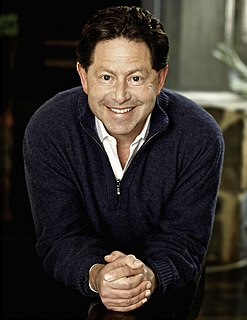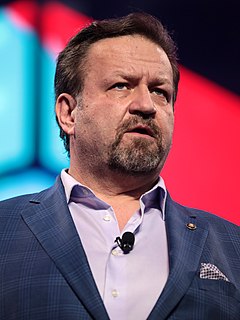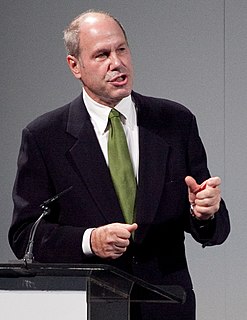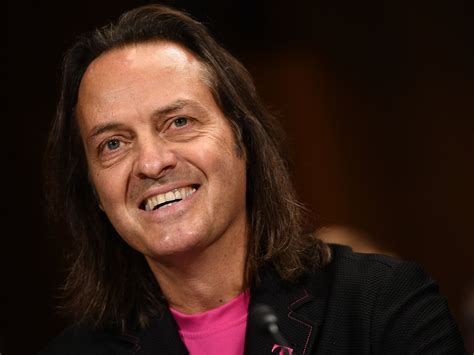A Quote by Walter Kiechel
I argue that once it became clear that the most important function of the CEO was to develop and enact the corporate strategy, that often had the effect of distancing him from people below him in the organization. It also encouraged the idea that if a CEO were a great strategist for a company in one industry, he would probably be a great strategist in another industry. And that usually hasn't proved to be the case.
Related Quotes
Somebody asked me 'what's the job of a CEO', and there's a number of things a CEO does. What you mostly do is articulate the vision, develop the strategy, and you gotta hire people to fit the culture. If you do those three things, you basically have a company. And that company will hopefully be successful, if you have the right vision, the right strategy, and good people.
I think that's the responsibility of the CEO and the CEOs below me: to make sure that we're constantly putting people in places where they have the opportunity to develop into those careers but also having a rewards and recognition system that allows a great programmer to stay as a great programmer.
There are three things you need to do as a CEO-founder. Think strategically, drive design, and drive technology. Some people who are really good at one can build a pretty foundational company. Most people who are very successful are good at two. But Jack is the only person in the Valley I've met who's all three. He's a first-rate strategist, a first-rate designer, and a first-rate technologist.
I visit T-Mobile call centers. We've got about 18 major call centers in the US, and before I was CEO, I heard that no CEO had gone to physically visit them. I go in, they meet me outside, we take selfies as I stand like a piece of furniture, I tell them about how things are going - but most importantly, I say thank you and help them see that their behavior and their work has driven the culture of the company that's changed the industry and the whole world. It's a bit of a love affair.



































